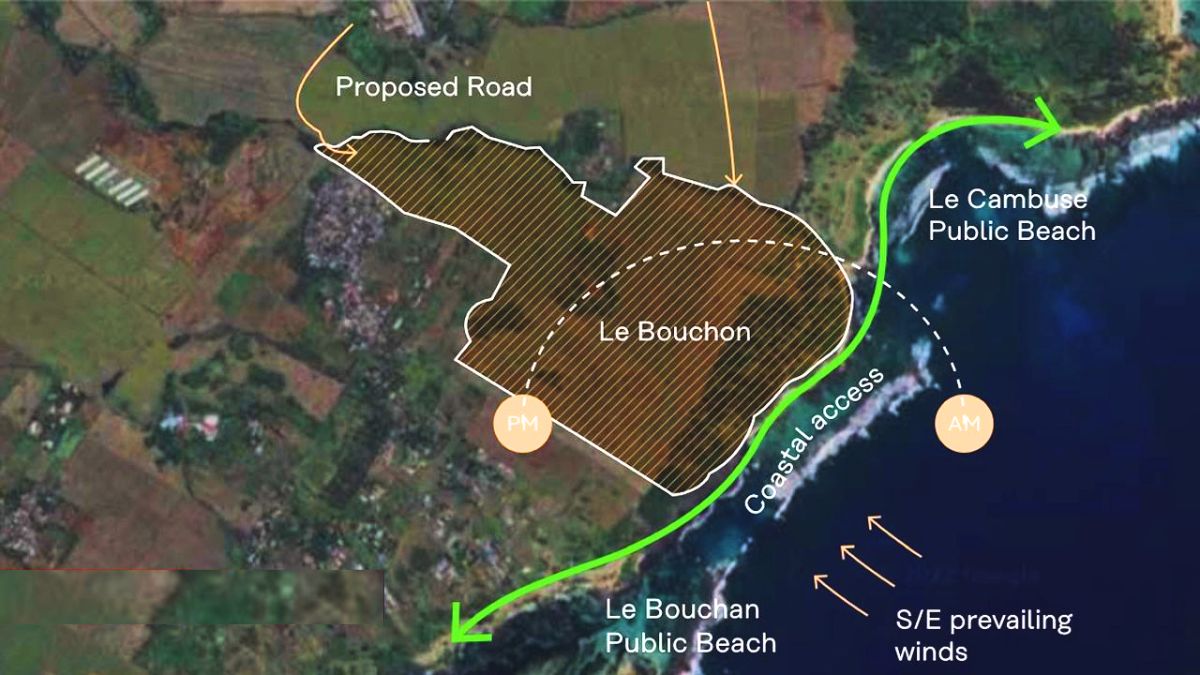News
Smart City Project in Le Bouchon Sparks Controversy

A proposed Smart City project by the Sugar Investment Trust (SIT) in Le Bouchon, a coastal area in southern Mauritius, has not received unanimous support.
The SIT, along with its partner Curzon Holdings (Mauritius) Ltd, has submitted an application for an Environmental Impact Assessment (EIA) permit to the Ministry of Environment for the first phase of the project involving the construction of a 5-star hotel with 200 rooms on the coastal area.
The project is expected to cost Rs 3.3 billion for the hotel and over Rs 14 billion for the entire “Smart City” development.
However, the project has been met with opposition from Rezistans ek Alternativ, which has filed an objection to the project at the Ministry of Environment.
The Smart City project is designed to integrate residential, commercial, and hotel components to create a self-sustaining environment that offers a place of work, living, and relaxation in a coastal setting.
The site will not feature any marine activities or construction on the geometric paces, which are primarily a sandy dune colonized by vegetation that overlooks the lagoon.
The Bouchon Development Company Ltd, a joint venture between the SIT and Curzon Holdings (Mauritius) Ltd, aims to develop its property, inherited from the Illovo Deal in the early 2000s, by building a hotel.
However, Rezistans ek Alternativ feared that the project could pose a threat to the Grand Port Fishing Reserve, which is located near the site.
“They plan to build channels that will allow them to dump sediments directly into the lagoon. This could kill life in the lagoon,” said David Sauvage of Rezistans ek Alternativ.
With Mauritius increasingly at risk of flooding and torrential rains due to climate change, it is essential to provide more protection for the streams located on and around the site.
“We should establish buffer zones of 200 meters on both sides,” he said. He also noted that the site features marshes that prevent seawater from infiltrating inland areas.
By removing these marshes, this protection would no longer be able to prevent saltwater from infiltrating inland areas and affecting fruit and vegetable plantations in this region.
This could also pose problems for water supply for residents who rely on these underground aquifers during periods of drought.
“We are in 2024, while public consultations for this project were held in 2015. The last consultation took place in 2017 for a project covering over 150 arpents. This is not possible and disrespectful towards people.”
Since 2015, there have been several significant events that have affected this region, including the COVID-19 pandemic, the sinking of the Wakashio oil tanker, sudden floods, droughts, and an increase in luxury villas and other projects on the coast. The ecological consciousness of Mauritian citizens has grown even more.
As concerns about environmental sustainability and social responsibility continue to rise, it remains to be seen whether this project will receive approval from authorities and whether it will be implemented in a way that respects the needs of local residents and preserves the natural beauty of Le Bouchon.
Source: Defi Media











